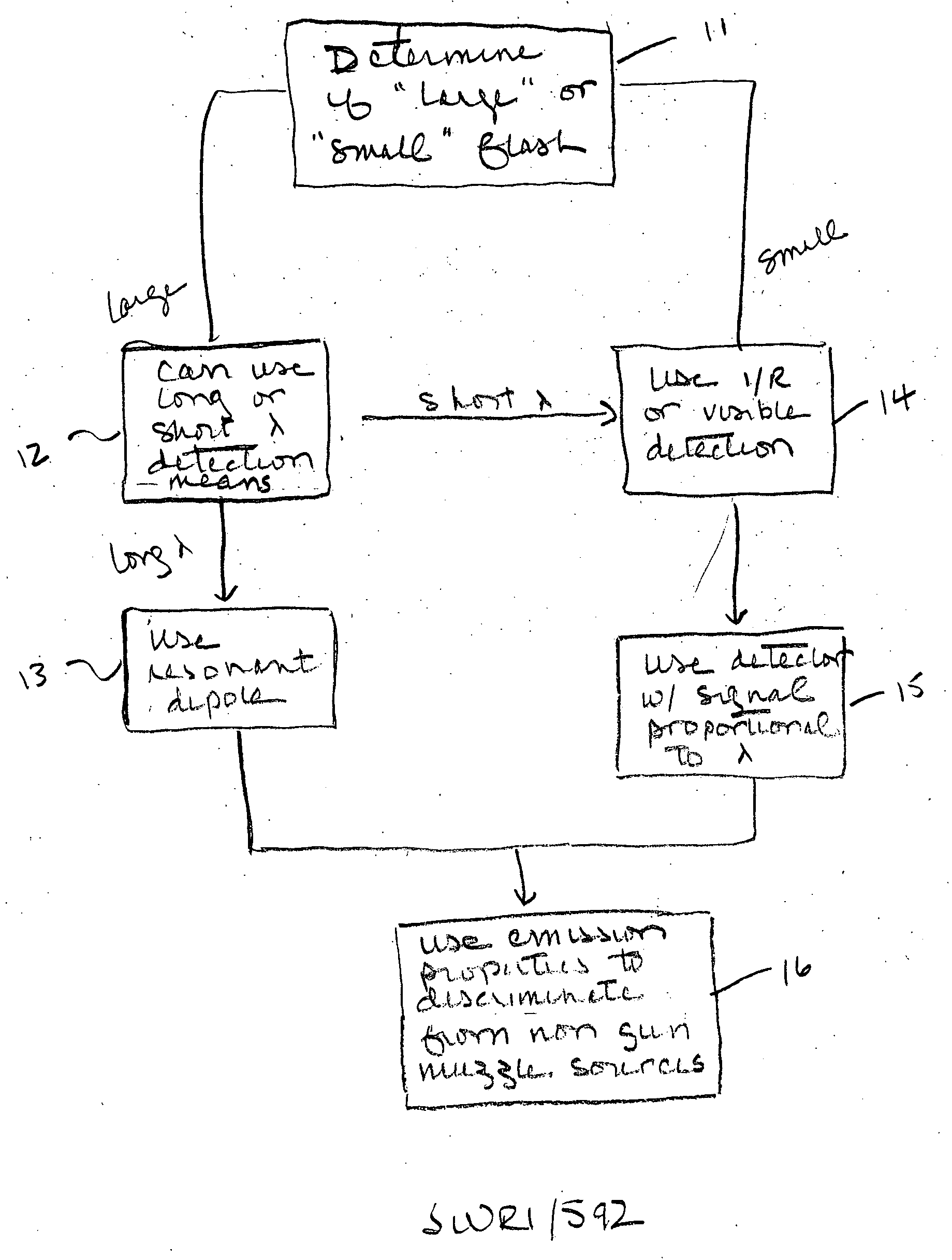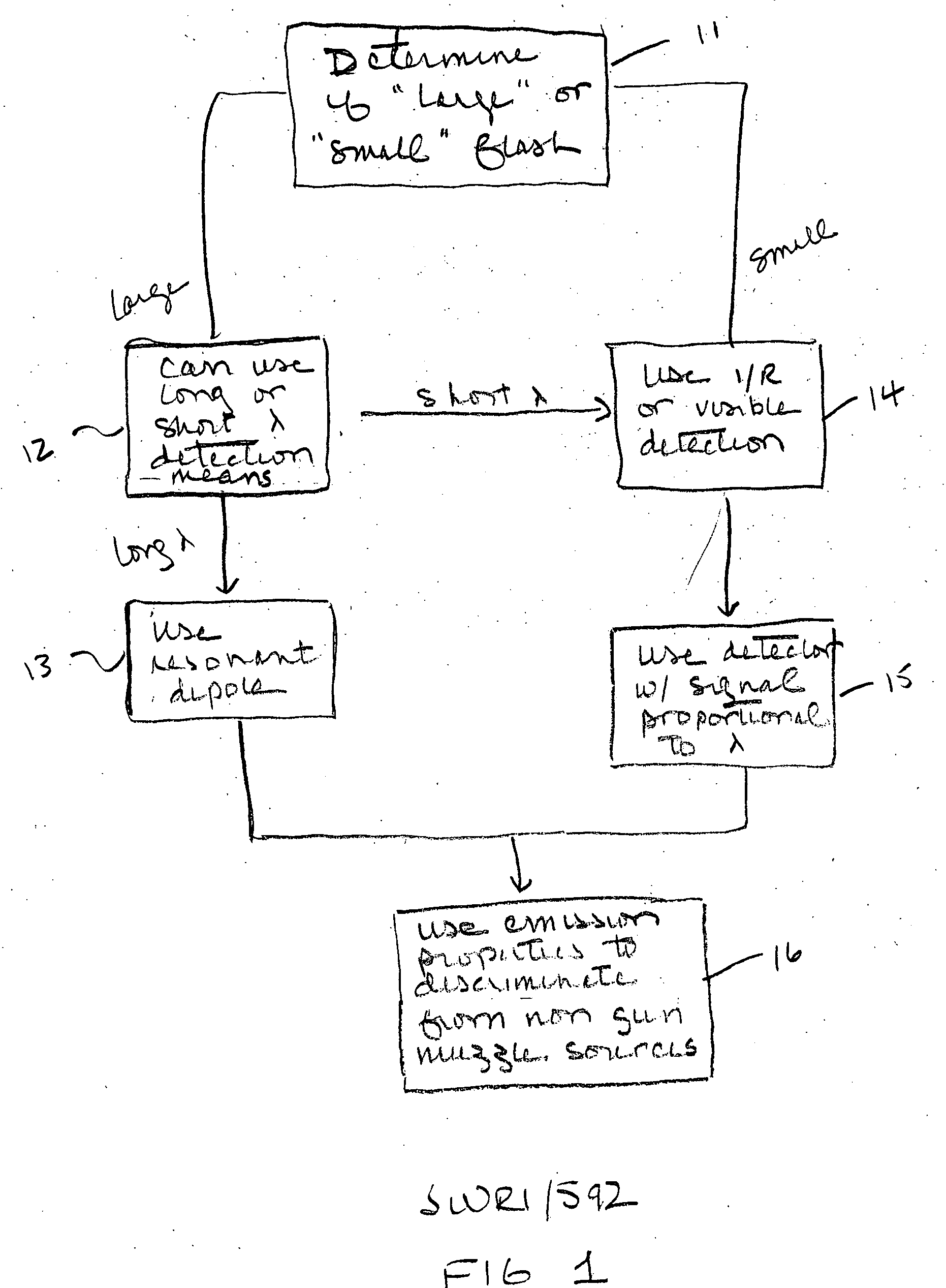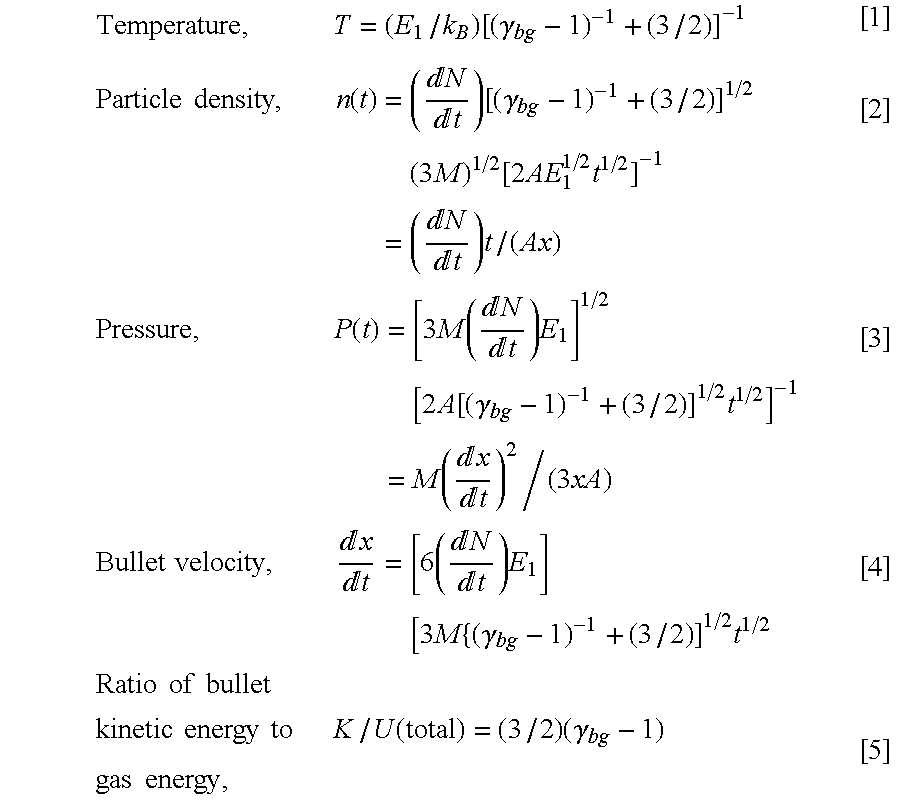Frequency-optimized detection of gun muzzle flashes
- Summary
- Abstract
- Description
- Claims
- Application Information
AI Technical Summary
Benefits of technology
Problems solved by technology
Method used
Image
Examples
Embodiment Construction
I. Overview
[0007]The following description is directed to a method in which remote detection of gunfire is achieved by means of the electromagnetic waves emitted by the muzzle flash. For large cannon, detection can be at low as well as at high frequencies. For small arms fire, detection is in the IR and visible wavelengths to capitalize on the increased power emitted at the higher frequencies. At IR frequencies, IR detectors that give signals proportional to detector area may be used (e.g. bolometric-type), which avoids the inverse squared frequency penalty imposed by the use of resonant antennas. For the same reason, at visible frequencies, optical-type detectors with sensitivities proportional to detector area (e.g. photodiodes) can be used. Arrays and lens- or mirror-telescopic detection systems may be used to increase sensitivity and directionality.
[0008]Detectors at short (visible and IR) wavelengths do not suffer from the inverse squared frequency dependence of resonant antenn...
PUM
 Login to View More
Login to View More Abstract
Description
Claims
Application Information
 Login to View More
Login to View More - R&D
- Intellectual Property
- Life Sciences
- Materials
- Tech Scout
- Unparalleled Data Quality
- Higher Quality Content
- 60% Fewer Hallucinations
Browse by: Latest US Patents, China's latest patents, Technical Efficacy Thesaurus, Application Domain, Technology Topic, Popular Technical Reports.
© 2025 PatSnap. All rights reserved.Legal|Privacy policy|Modern Slavery Act Transparency Statement|Sitemap|About US| Contact US: help@patsnap.com



